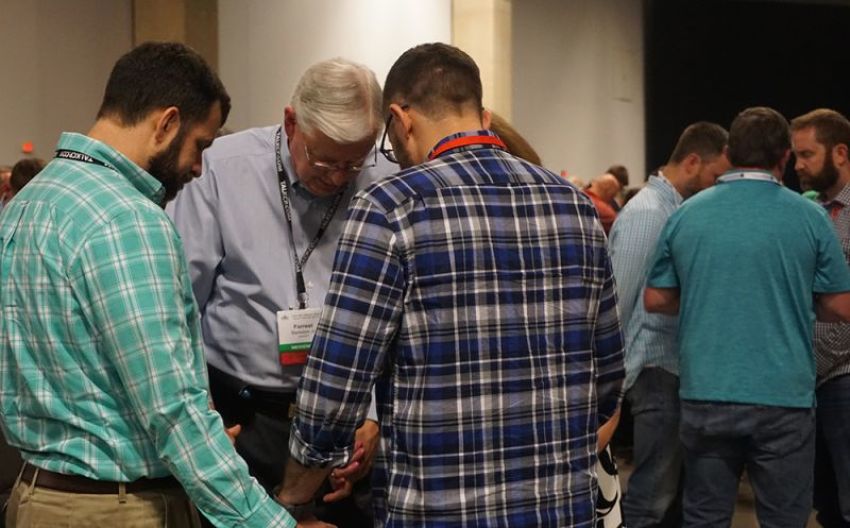Highlights from the Southern Baptist report on sexual abuse

The Southern Baptist Convention's Sexual Abuse Advisory Group released its report Saturday.
The 51-page report was posted ahead of the SBC annual meeting on Tuesday and Wednesday in Birmingham, Alabama.
The SBC Sexual Abuse Advisory Group was formed after the Houston Chronicle published a series of articles, beginning early February, on sexual abuse in Southern Baptist churches. The final part 6 of that series was published Thursday. According to Houston Chronicle Deputy Investigations Editor Lise Olsen, the newspaper received more than 350 additional tips and emails after part 1 was published.
The Sexual Abuse Advisory Group report, titled "Caring Well," has three main sections, "Share," "Care," and "Prepare," which cover, respectively, understanding the problem, caring for the victims of abuse, and abuse prevention.
Here are some highlights from the report:
Testimonies
Throughout the whole report there are testimonies, some anonymous, from people affected by sexual abuse. The report contains a "graphic content" warning due to some of those testimonies.
In one testimony, sexual abuse survivor Nathan Murray wrote about being abused by his youth pastor, Dan, while in middle school.
"Several years ago I learned that Dan was teaching Sunday school at a local church. I contacted the head pastor to let him know about my abuse and warn him about Dan. The pastor made it clear that this was a matter he didn’t want anyone to know about, because he didn’t want anyone to be 'embarrassed,'" Murray wrote.
Pastor Marty Hogue wrote about his experience as a father whose son was sexually abused by a church organist named Bob.
"After the story about Bob had gotten out, I was amazed at how many other people told me stories and their feelings about Bob. He was crafty. Many, and even myself, had felt something wrong in the beginning, but gave him the benefit of the doubt. Over time he snookered us all. I also had many people tell me they had been abused as a child, and had never told anyone, or they were not believed. It was like we turned on a faucet," he wrote.
Perpetrators vs. Victims
The report emphasizes repeatedly that churches failed by both protecting abusers and not caring properly for victims.
"In the past, some SBC churches and leaders have been most concerned with protecting the reputation of their ministry and the church when abuse comes to light. Thus, they have failed to protect the survivors of sexual abuse themselves and failed to prevent future victims," it reads.
The report also warns against using language that suggests the victim is to blame for their abuse.
"We see this in questions put to the victim, such as, 'What were you wearing?' and in terms like 'sexual sin' rather than 'abuse' and 'assault,'" it states.
And churches must avoid, "Creating cultures where pastors and leaders cannot be questioned and where accusers are seen with skepticism and fear, rather than love and concern."
Law Enforcement
Sexual abuse must be reported to the proper authorities, the report emphasizes in several places.
Each congregation should know its legal requirements, and the legal bodies they report to will vary depending on their state and local governments.
"The church should not act as an investigative body in criminal matters. When abuse is disclosed and investigation is needed, local law enforcement should be called," the report says.
Theology
The report says theology has been misapplied, which contributed to church failures in sexual abuse situations in various ways.
"Wrong teaching that leads to treatment of women and children as inferior to men in value, intellect, and discernment," and, "Misapplication of complementarian teaching, leading to women submitting to headship of all men," are two examples.
Denominational Governance
One hurdle mentioned often in debates over how the SBC can address its sexual abuse crisis is its governance structure, or ecclesiology. SBC churches have a great deal of autonomy compared to other denominations. It's not hierarchical, like, for instance, the Roman Catholic Church.
The report says this doesn't mean the SBC is incapable of dealing with the sexual abuse crisis.
"This structure should be utilized to allow each pastor to provide the justice and healing needed to stop abuse, turn perpetrators over to the justice system, and provide safe havens for victims. Instead, leaders in some churches have provided cowardly cover for perpetrators and have claimed to be dispensing mercy while withholding it from victims, and instead allowing injustice and evil to flourish," the report states. "... Moving forward, we must determine to no longer allow our church structure or its leadership to hinder justice or healing for survivors of sexual abuse."
How church leaders are chosen and retained is also part of the problem, the report says. Such as when churches "[elevate] leaders to inappropriate platforms and pedestals upon which they are revered and believed to be indispensable," "[emphasize] competency over character in our hiring practices," or "... are quick to see power and a dynamic talent, but undervalue humility and a shepherd’s heart."
In one of the testimonies, sexual abuse survivor Stephani wrote, "Sexual Abuse is multifaceted, a survivor can project confidence and true beauty on one side while at the same time feeling alienated and worthless. I am thankful for this report and the leaders who showed bravery in compiling it. Now the real challenge begins."
For more info, check out CaringWell.com.



























